Before heading south for a seven-day hiking and yoga trip in Patagonia with Sup Yo Adventures, I decided to spend 4 days in Santiago. Since most international flights connect through here, it felt like the right chance to explore Chile’s capital before venturing into the extremes of the Andes and Patagonia.
To get a feel for the area, I contacted Turismo Milodón, a company I found through a search. They put together a four-day sampler itinerary based on what I was looking for. It covered a little of everything: city exploring, Chile’s colorful coast, a hike in the Andes, and biking through vineyards. Enough to give me a taste of Chile—city, coast, mountains, and wine country.
Santiago itself sits in central Chile—with the Andes on one side and the coastal range on the other. It’s the country’s largest city and main hub. Flights, politics, culture, food—everything flows through here at some point. The city is a mix: wide boulevards, leafy parks, glass towers, and pockets of colonial-era architecture.
For my stay, Turismo Milodón booked me into Hotel Ismael in the Lastarria neighborhood. I had asked for somewhere moderately priced, central, and walkable, with cafés and small galleries nearby, and Lastarria turned out to be a perfect fit.
Right across the street was Parque Forestal, a long green stretch that quickly became part of my routine. I often cut through it on my way to different parts of the city, passing joggers and dog walkers in the morning and students and families filling the benches by afternoon. Having the park right there gave the neighborhood a relaxed, open feel, even though I was in the middle of a capital city.
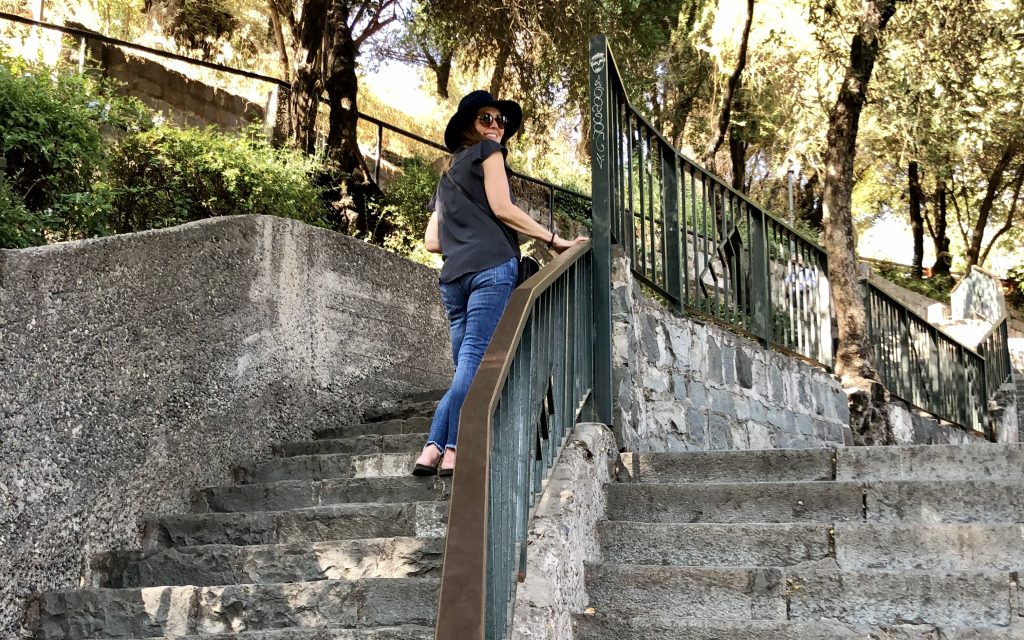
Below is how my 4 days in Santiago unfolded, one day at a time.
Turismo Milodón had a driver waiting at international arrivals, which made things easy. The ride into Santiago took about 30 minutes.”
I had about four hours before my afternoon tour began—just enough to check in, take a shower, and grab some breakfast at the hotel (it was included in my stay) before wandering the streets around my neighborhood. Those few hours helped me ease into the rest of the day.
When my guide arrived that afternoon, we headed first to Plaza de Armas— the historic heart of the city. The square was lively with people, street performers, and vendors. On one side stood the Metropolitan Cathedral, one of the city’s most important churches, and nearby was the Palacio de los Tribunales de Justicia, where Chile’s Supreme Court is based.


From there we walked down Paseo Bandera, a pedestrian street transformed into a giant piece of public art, with murals painted across the pavement and bright red benches scattered like playful sculptures.

Our route also took us past the Santiago Stock Exchange, an elegant beaux-arts building from Chile’s financial boom years, and into the Plaza de la Ciudadanía, where a massive Chilean flag—the Gran Bandera Bicentenario—flies proudly in front of La Moneda Palace, the seat of government.
As we walked, my guide pointed out the Iglesia de San Francisco, the oldest surviving colonial building in Santiago. From there, we went into Barrio Lastarria (where I was staying) and Barrio Bellavista, neighborhoods known for their creativity. Murals, mosaics, and street art covered the walls—everything from small shutter paintings to entire houses drenched in color.

We finished the afternoon with a climb up Cerro San Cristóbal, the steep hill above the city. From the top, the city sprawled in every direction.
The tour ended at a local home with a traditional Chilean dinner. First came sopaipillas (fried pumpkin bread), still warm from the pan, served with pebre, a fresh tomato and cilantro salsa. Then a humita, a sweet-savory corn pudding steamed in husks. To drink, a bottle of Carménère, Chile’s signature red wine. Not a bad way to spend my first day in Santiago.
The next morning I met up again with the same guide from my city tour, this time to head out of Santiago and explore the coast. I’d booked a day trip that included Viña del Mar, Concón, and Valparaíso—three very different places that gave me a quick taste of Chile outside the capital.
We started in Viña del Mar, known as “the Garden City” for its beaches and manicured parks. It’s a popular summer getaway for people from Santiago, with resorts, long boulevards, and a tidy, polished feel. Our first stop was the Reloj de Flores, the city’s flower clock, a giant working timepiece made from blooming plants.
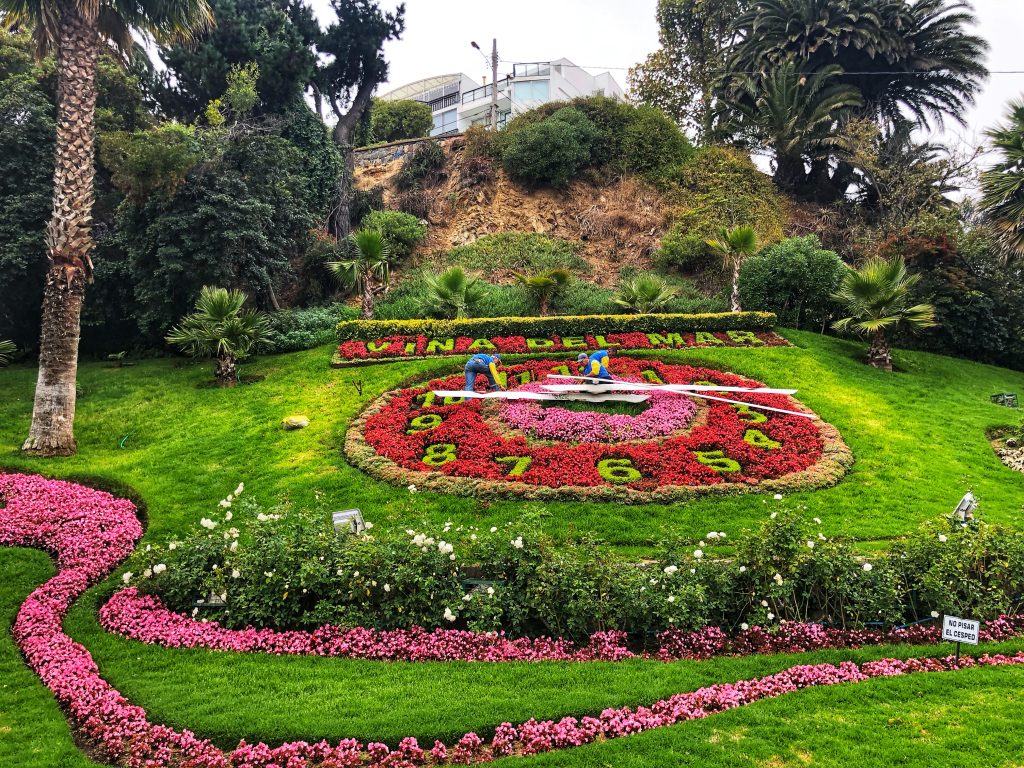
Then we visited the Museo Fonck, which has one of the few authentic moai statues from Easter Island (Rapa Nui) displayed outside the island itself. Standing in front of the museum’s neoclassical building, the moai felt a little out of place—but also a reminder of how far Chile stretches across the Pacific.

From Viña we drove north to Concón. The coastline was wild: cliffs plunging into the sea, waves hammering the rocks, seabirds circling overhead. The road hugged the Pacific, ocean on one side, tall apartment blocks stacked up the hills on the other. We pulled over a few times to scramble over boulders and take in the view. It was starkly beautiful, with hardy plants gripping the cliffs against the wind.
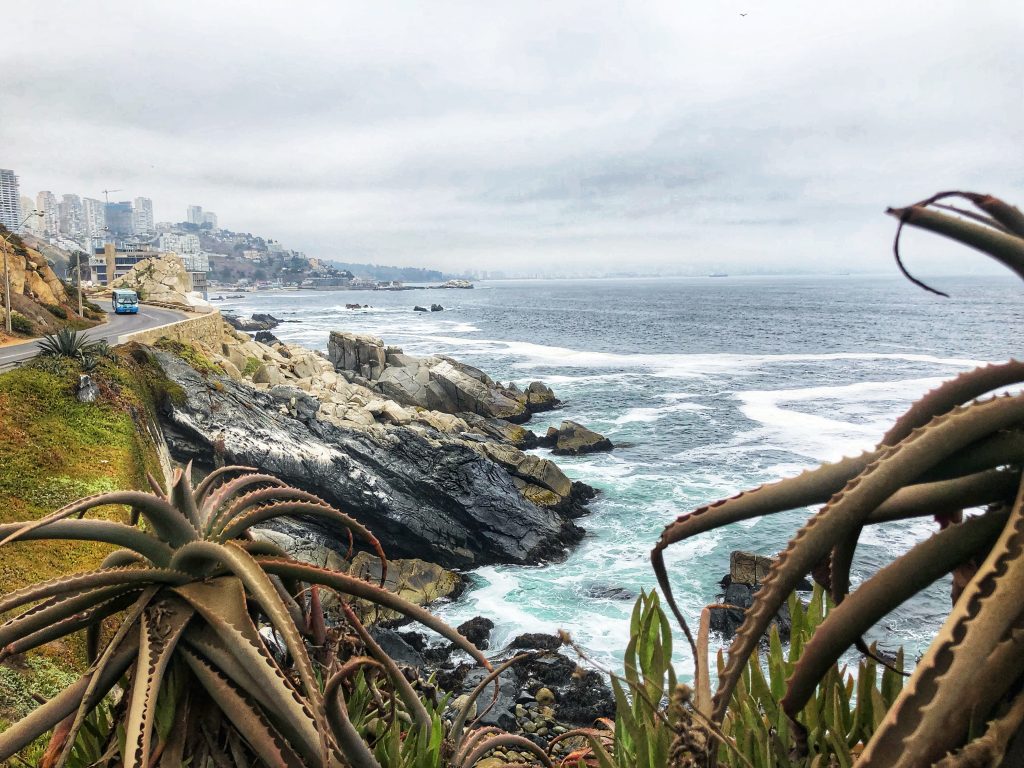
By afternoon we reached Valparaíso, Chile’s port city and a UNESCO World Heritage Site. Once the country’s busiest harbor until the Panama Canal shifted shipping routes, it’s now better known for steep hills, old funiculars, and street art. The streets are so steep you quickly see why the funiculars exist. Exploring here isn’t a flat wander but a climb, with something new around every corner.
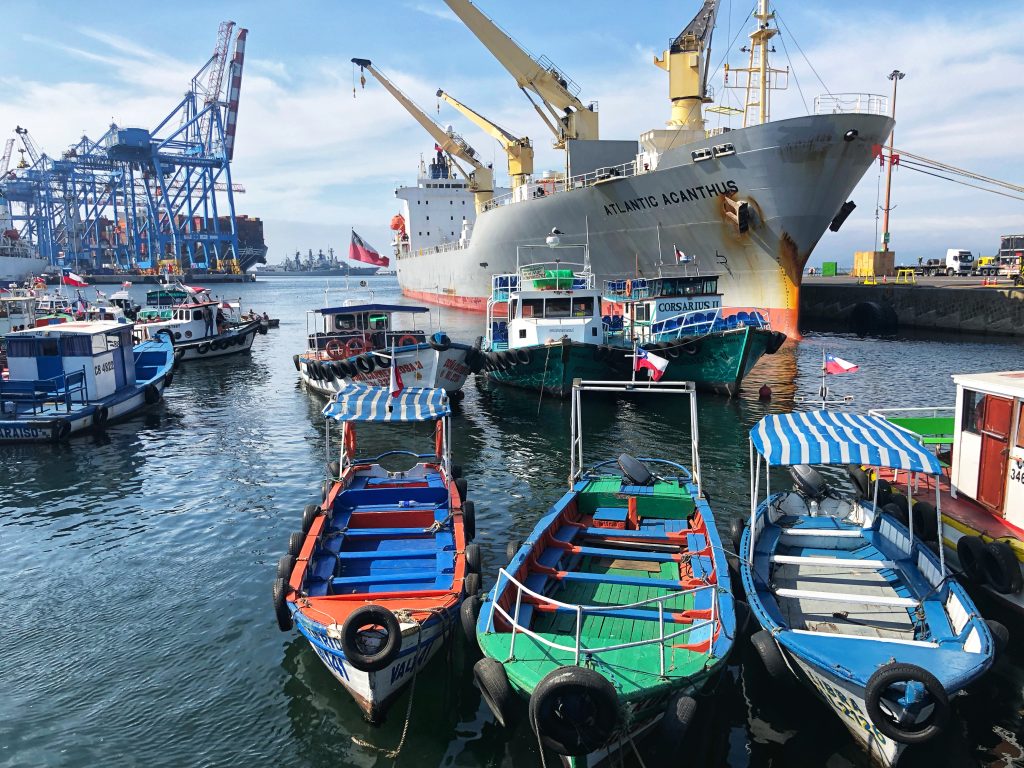
We began at the port and made our way through a few of the traditional hilltop lookouts, lined with colorful houses, hotels, and cafés. On the itinerary Turismo Milodón planned for me, Valparaíso was one of the stops I was especially looking forward to—mainly for the murals. They didn’t disappoint. They’re everywhere: a pirate peering through a telescope, a hummingbird exploding in blues and reds, staircases painted with words and patterns.
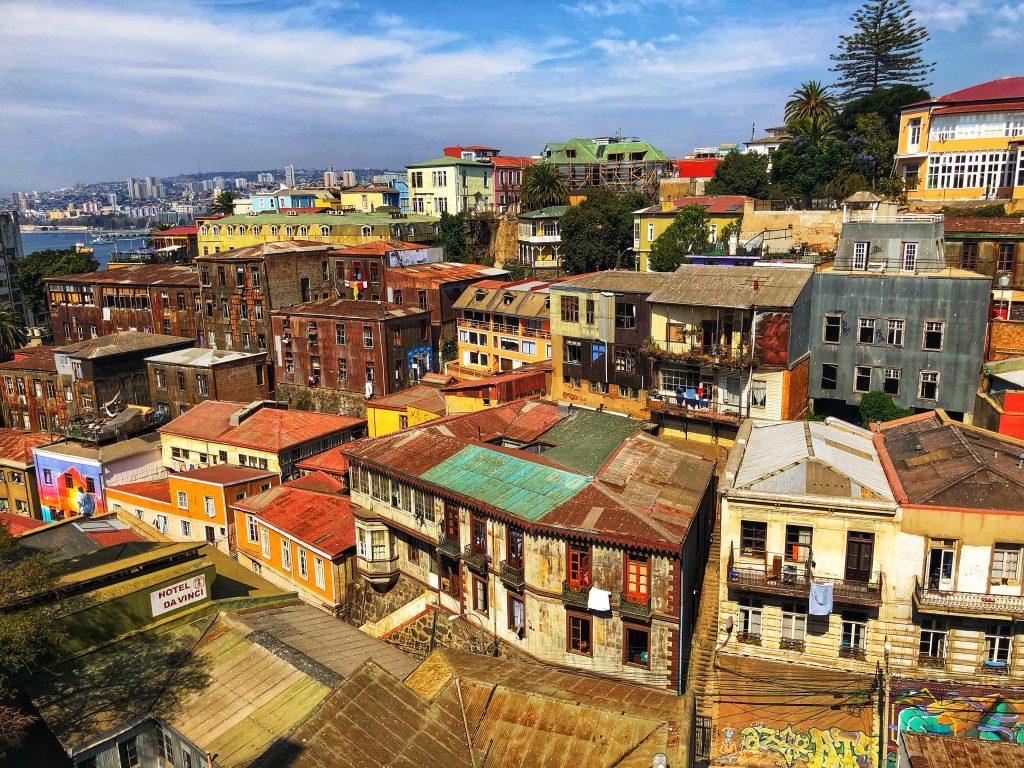
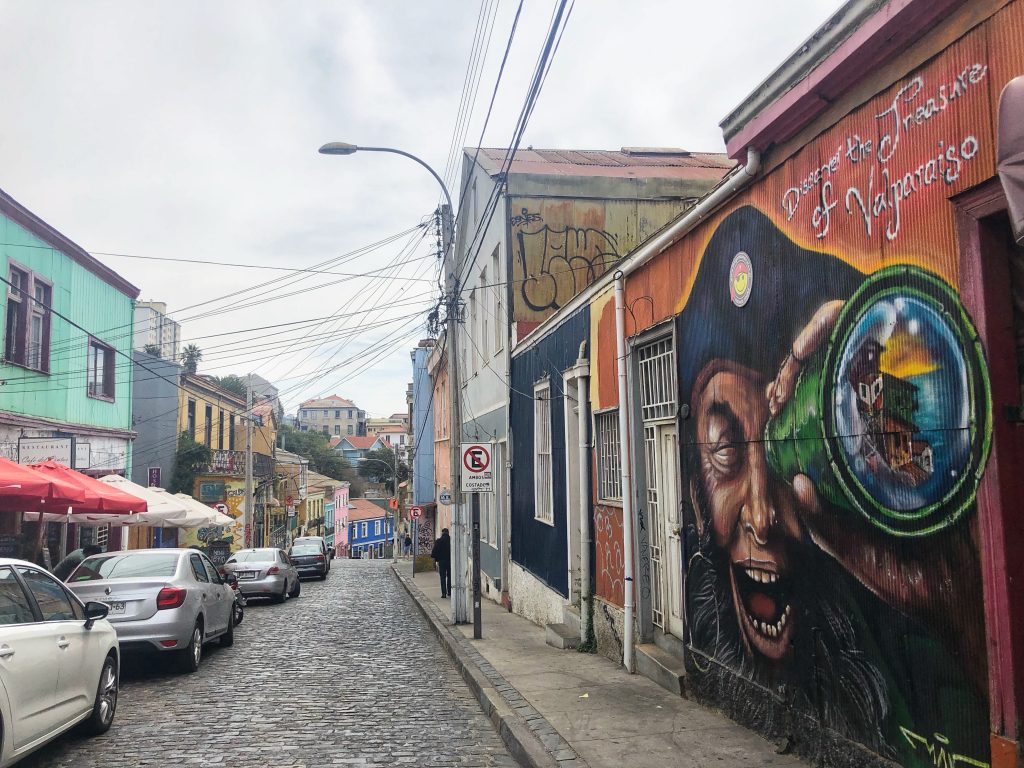
We stopped for lunch at Empanadería Lepato, a tiny shop with a hand-painted blue sign. I picked two vegetarian empanadas, baked in a hearty whole-wheat crust—simple, filling, and really good. I ate them standing on the sidewalk, surrounded by Valparaíso’s color.
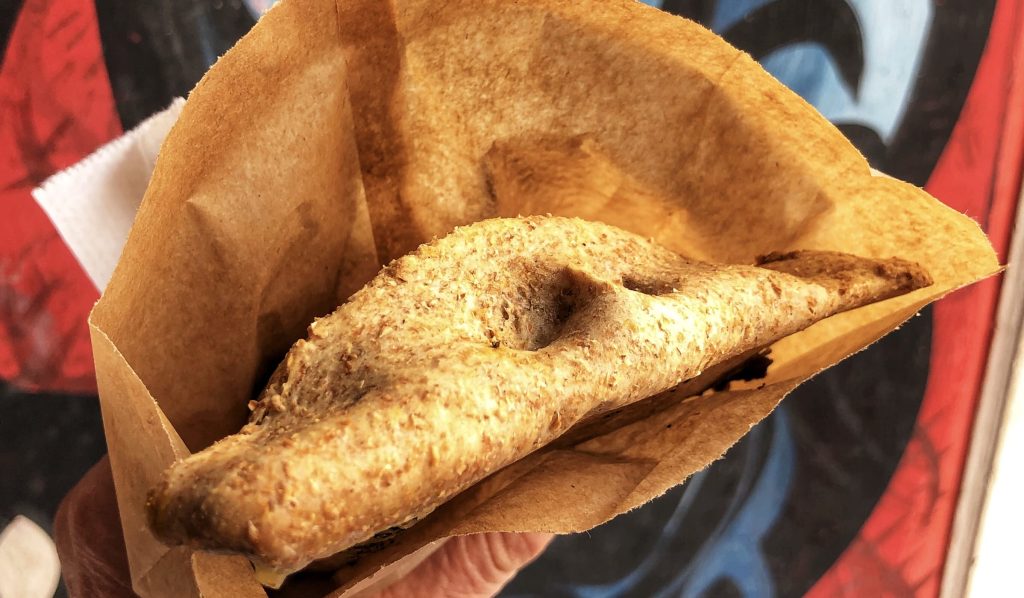

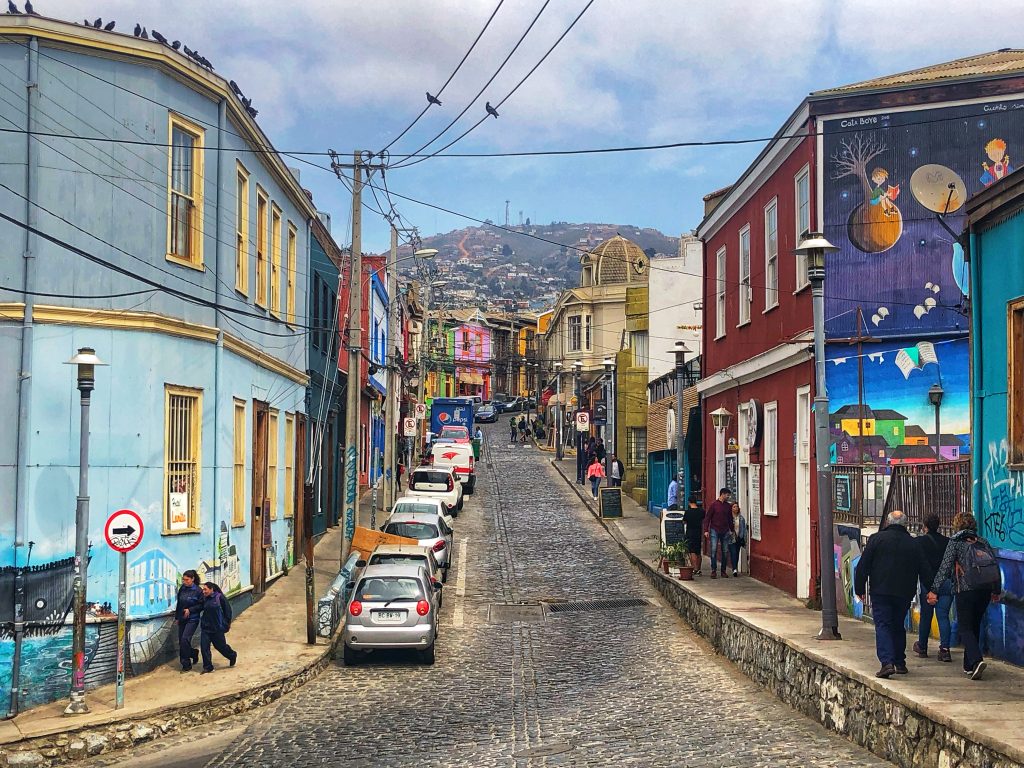
I kept climbing through the hills—uneven cobblestones, steep streets, murals everywhere. From the top I looked out over a patchwork of rooftops tumbling toward the port. Below, one of Valparaíso’s old funiculars clattered up the hill. Once there were more than 30 of these elevators; only a handful survive today, but they’re still part of daily life.
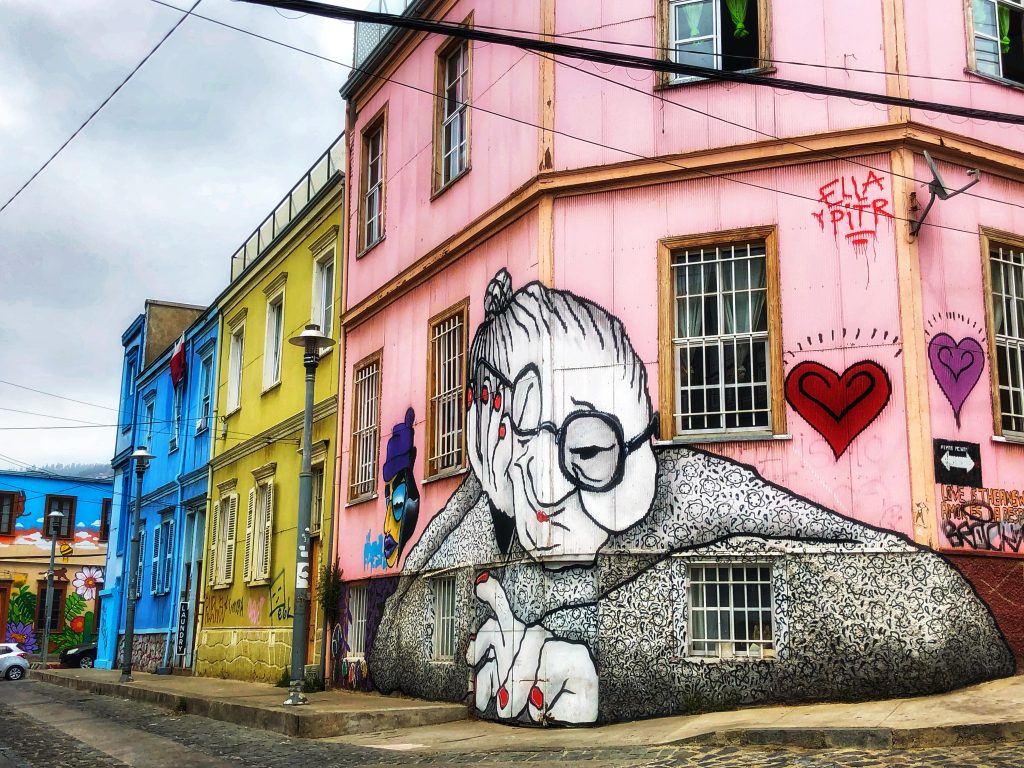
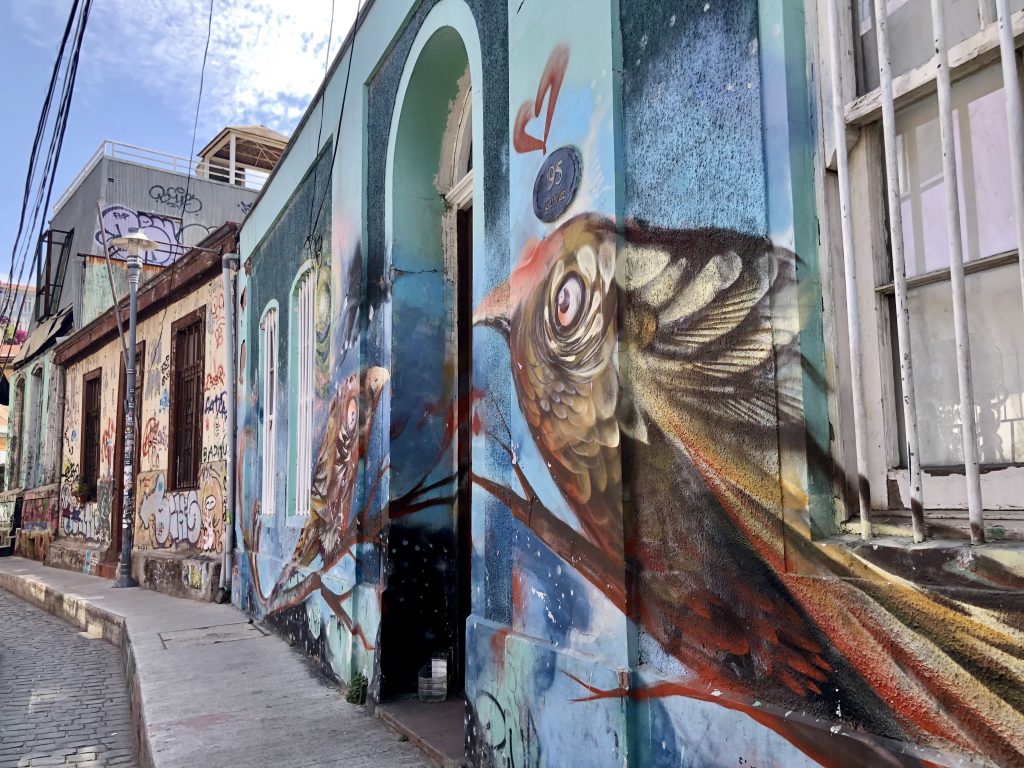
At one point, we stopped at Café Turri, a hillside spot with a terrace overlooking the bay. I had a cappuccino and a pastry while looking out at the jumble of colorful houses climbing the hillside and the busy harbor below. It was the perfect pause to take in what makes Valparaíso special.

Valparaíso was a lot to take in—noisy, colorful, and unpredictable—and that’s what made it memorable.

Back at my hotel later that evening, I was hungry but only wanted something quick. Around the corner I found a little pizza place that, oddly enough, topped theirs with corn. Most of the options also came loaded with meat, so I kept repeating what I thought was “no meat” — pizza sans carne. No wonder the guy looked confused; I was mixing French and Spanish. Eventually I corrected myself with sin carne and wound up with a corn-topped, meat-free pizza. It was fabulous.
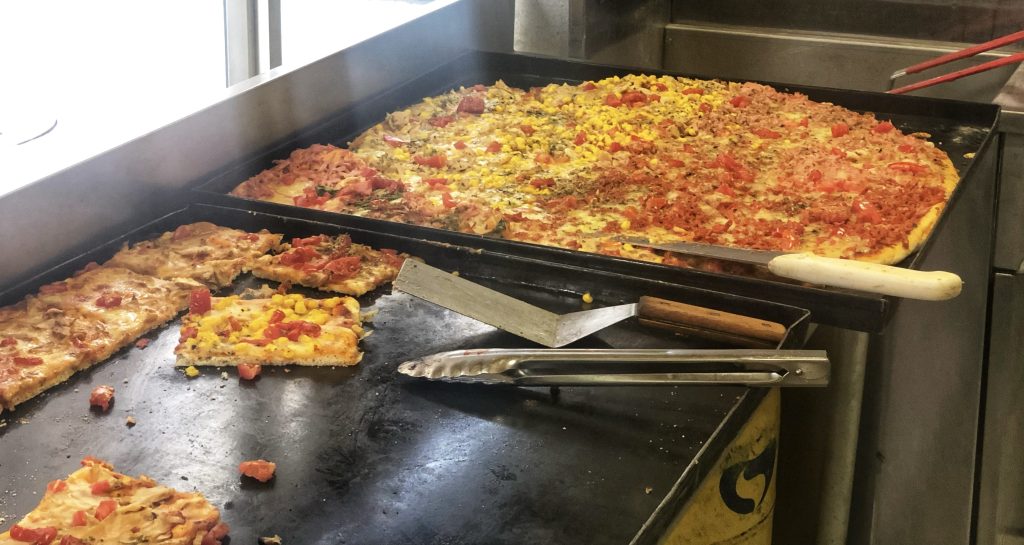
Today I headed out of town again, this time for a hike in the Cajón del Maiporegion region—southeast of Santiago near the San José Volcano. Getting there meant a nearly three-hour drive, winding through Andean canyons before reaching the trailhead.

The path climbed steadily through a stark, beautiful landscape: snow-capped peaks in the distance, slopes patched with hardy shrubs and yellow grass, and deep canyons carved by rivers and glaciers. Eventually we reached a lookout, with the San José Volcano coming into full view.
It’s still considered active, with its last eruption in the 1960s, and sitting there it was hard not to ignore its quiet presence. We lingered on the rocks, eating the sandwiches and snacks our guides had packed, with the Andes stretching out endlessly around us.
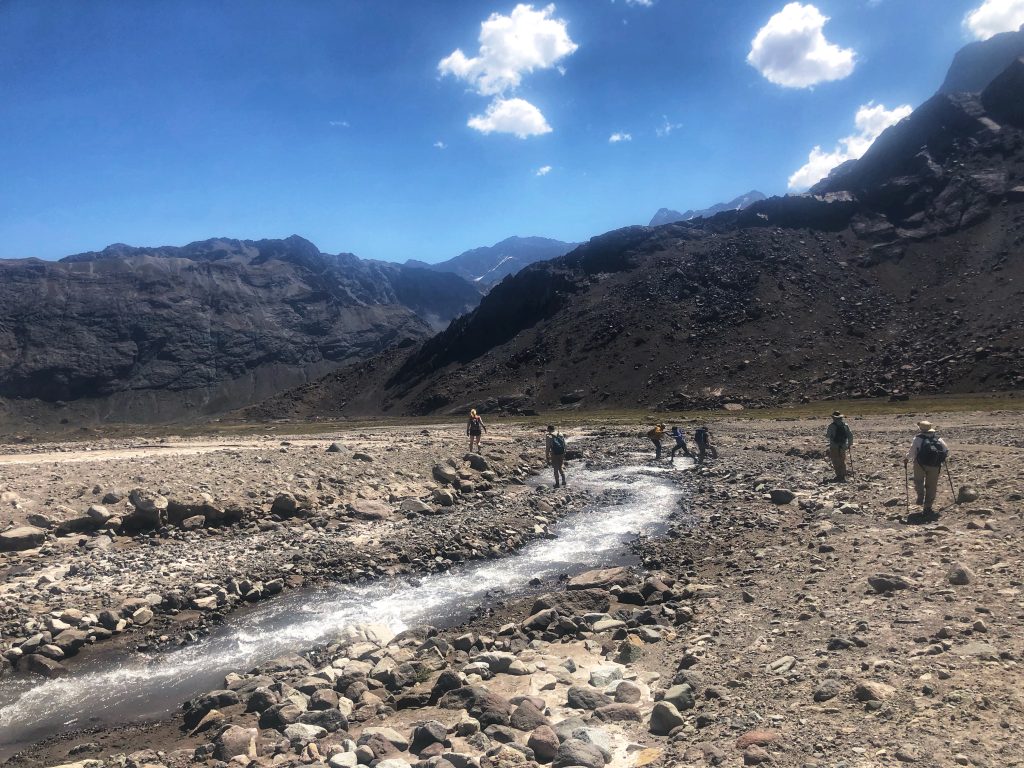
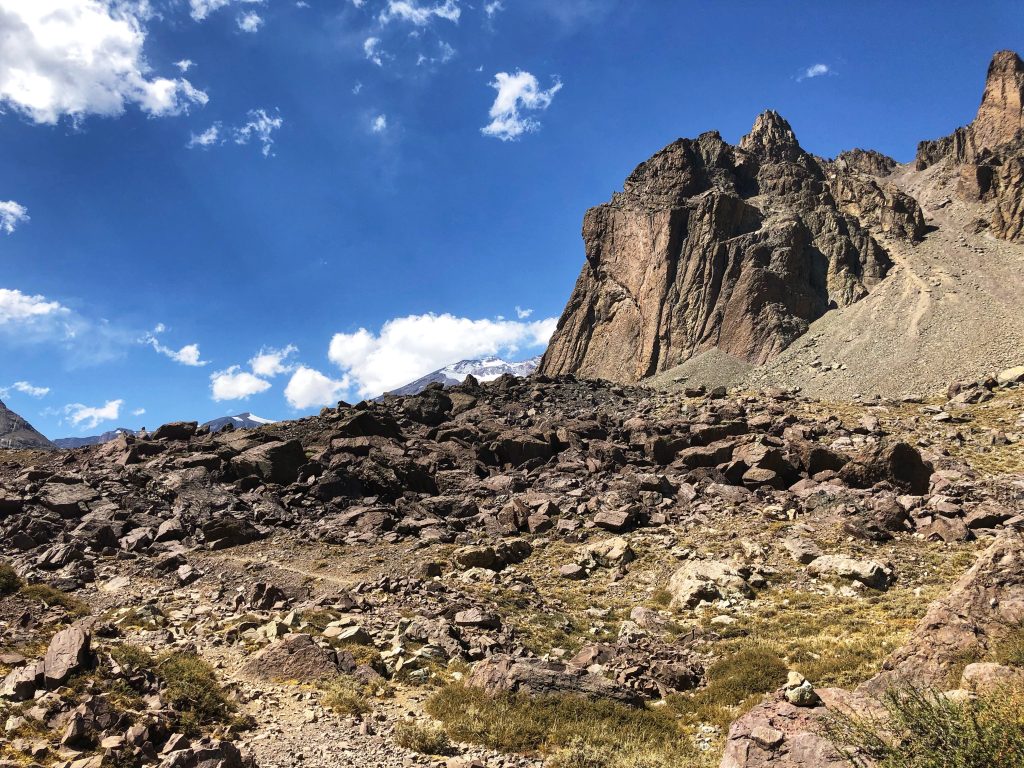
At the start of the hike, the guides gave us one rule: no photos while walking. Stop first, then shoot. I followed it all day…until the last half hour. One of the guides pulled out his phone to film, and I thought, okay, video’s different. I figured I could just hit record, hold my phone out, and still keep my eyes on the trail. Only problem was the one moment I broke the rule — walking while hitting video — that was all it took. My boot caught a rock and I went flying.
A sharp piece of shale tore into my forearm, leaving a six-inch gash. Not life-threatening, but clearly more than a trail-side bandage could fix. The guides rinsed it, wrapped it, and told me I’d need a hospital as soon as we got back to Santiago.
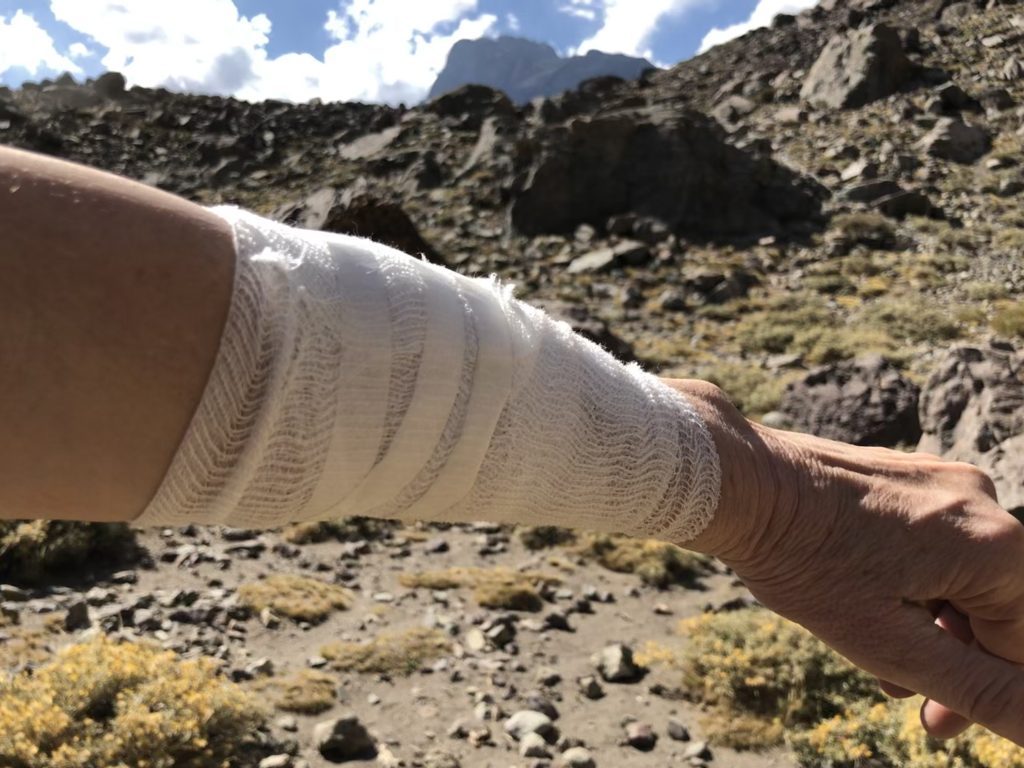
That meant another three-hour drive before I could deal with it properly. Back at my hotel, the staff immediately stepped in—calling an Uber, walking me outside, and explaining to the driver exactly where to go: Clínica Santa María, a large private hospital nearby.
Inside, language was the biggest challenge. Almost no one spoke English, and check-in dragged on awkwardly. Eventually I saw a doctor who cleaned the cut thoroughly, skipped stitches, and closed it with butterfly bandages instead. His instructions were simple: keep it wrapped for three days and be careful—especially with Patagonia ahead.
By the time I returned to the hotel, I was bandaged, tired, and more than a little humbled. The Andes don’t forgive distraction, and neither do foreign hospitals when you don’t speak the language. I walked away with a scar, a story, and a reminder I won’t forget anytime soon: follow the rules—and always keep a translation app handy.
For my last day in Santiago, I swapped hiking boots for a bike helmet and joined a countryside cycling and wine tour in the Maipo Valley, near Pirque. The ride itself was a highlight—quiet country roads lined with fields and vineyards, with the Andes always on the horizon.
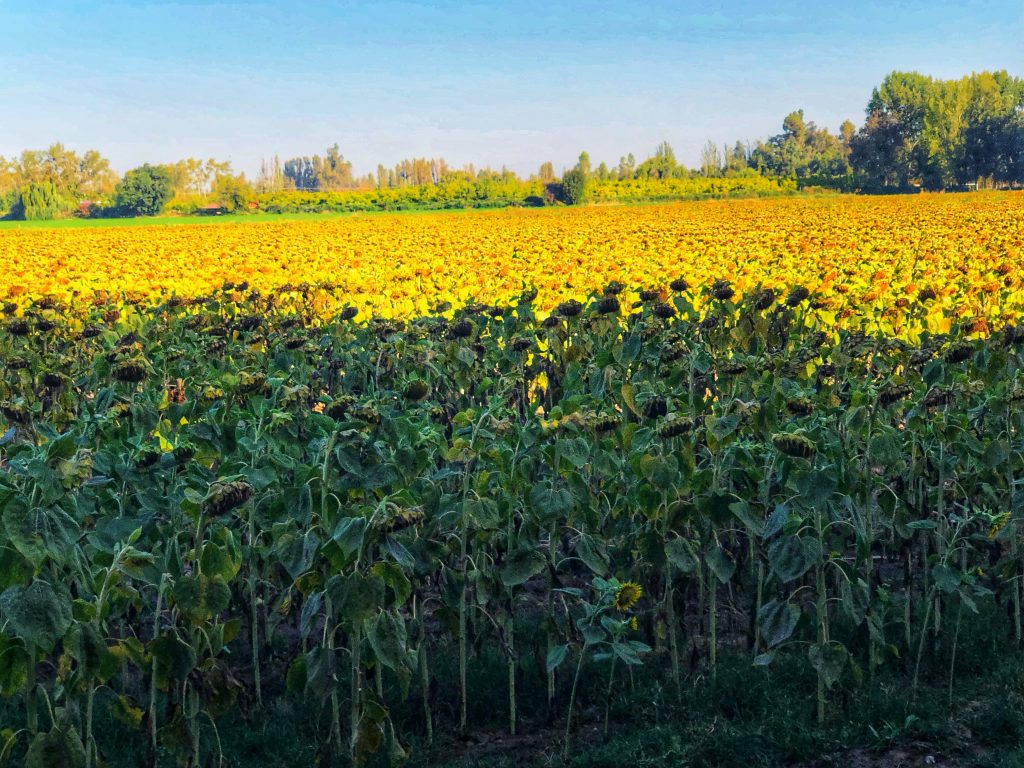
We pedaled through the grounds of Cousiño Macul, one of the oldest wineries in the region. After weaving past rows of ancient vines, we walked down into the family’s century-old bodega, its stone walls lined with the barrels and bottles of their private collection. Then came the tasting: Carménère, Merlot, and Sauvignon Blanc. Each glass was paired with a small cheese plate.
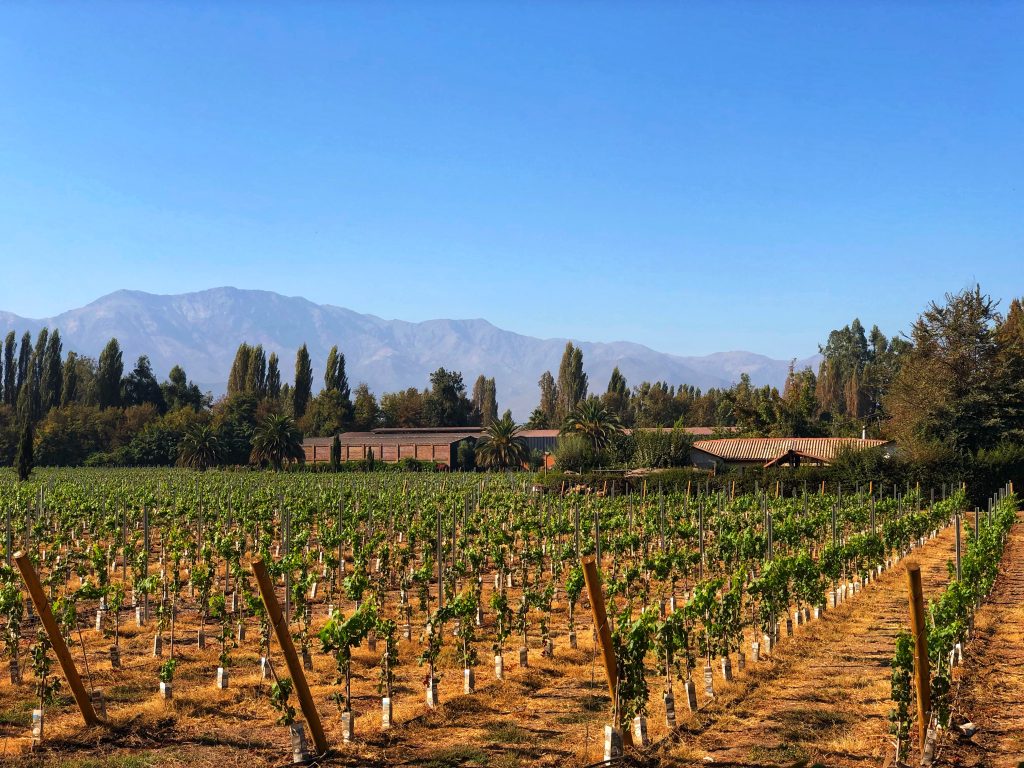
I was joined that day by three men who had gone to college together and were traveling as a group. They couldn’t have been nicer—funny, easygoing, and generous with their wine notes. By the end of the tour they even invited me to join them at two more wineries. It was tempting, but my driver was waiting, and I had an early departure the next morning for Patagonia.

Still, the mix of bikes, vineyards, and good company made for an easy, sunny finale in Santiago. It was the perfect send-off: fresh air, movement, and one last lingering look at the Chilean countryside before heading south.
Four days in Santiago gave me a little of everything—city neighborhoods, coastal street art, a rugged Andes hike (with a scar to prove it), and a countryside bike ride with wine tasting. It was far more than just a stopover.
Next up: Patagonia. Tomorrow I trade vineyards and bike paths for glaciers, mountains, and some of the most dramatic trekking on earth.
7 Days of Hiking and Yoga in Patagonia’s Torres del Paine
After Santiago, I flew south to Patagonia for a week of trekking and yoga inside Torres del Paine National Park. Think eco-domes, glacier hikes, and yoga sessions with mountain views. If Santiago gave me color and culture, Patagonia gave me raw wilderness and the most dramatic landscapes I’ve ever hiked through.
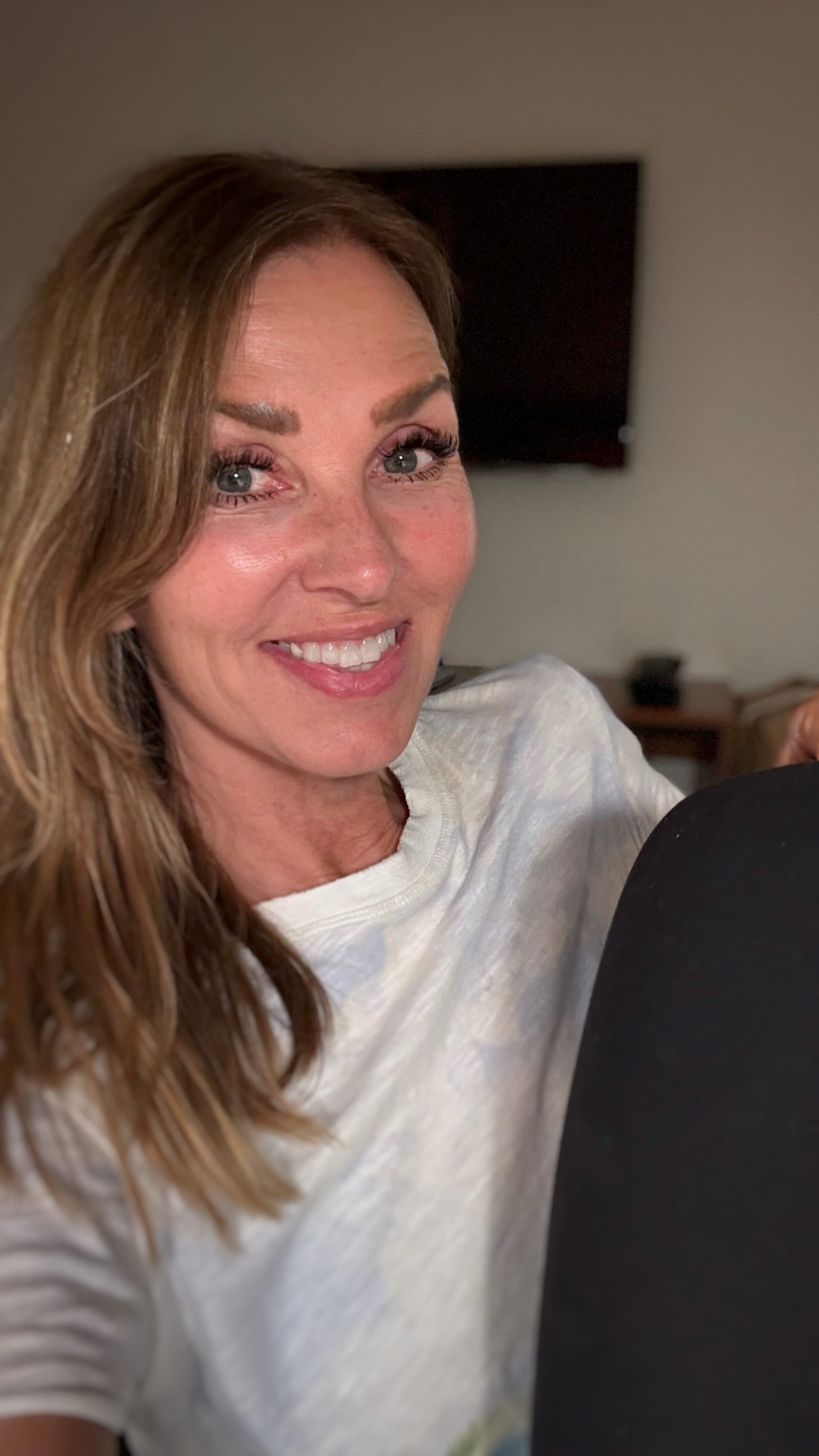
Hi, I’m JoAnne—writer, wanderer, and lover of places that surprise me. I’ve traveled to 60+ countries (and counting), usually with a camera in one hand and a notebook in the other. I’m drawn to mosaics, markets, and mountains, and I write to remember what moved me. When I’m not traveling, I’m working on my blog Travels Afoot, trying new creative projects, or planning my next adventure.